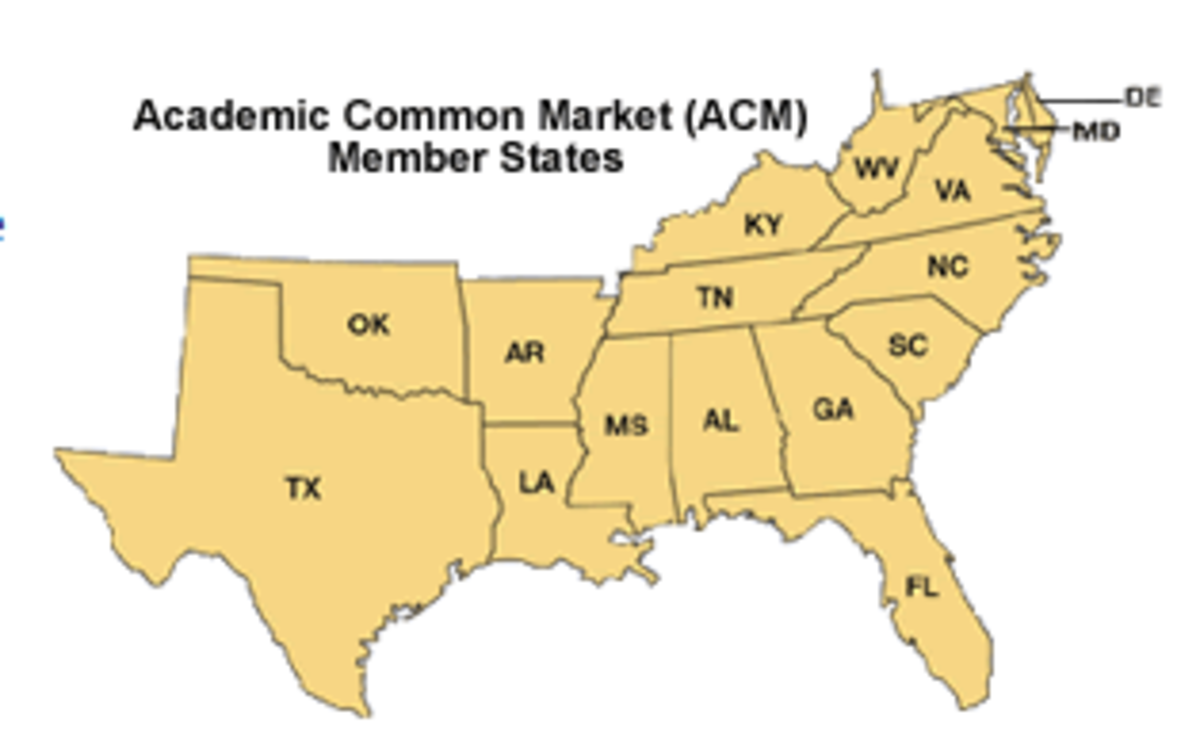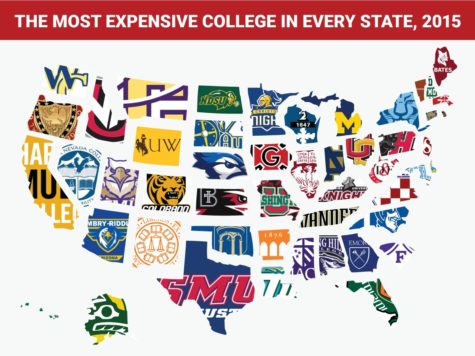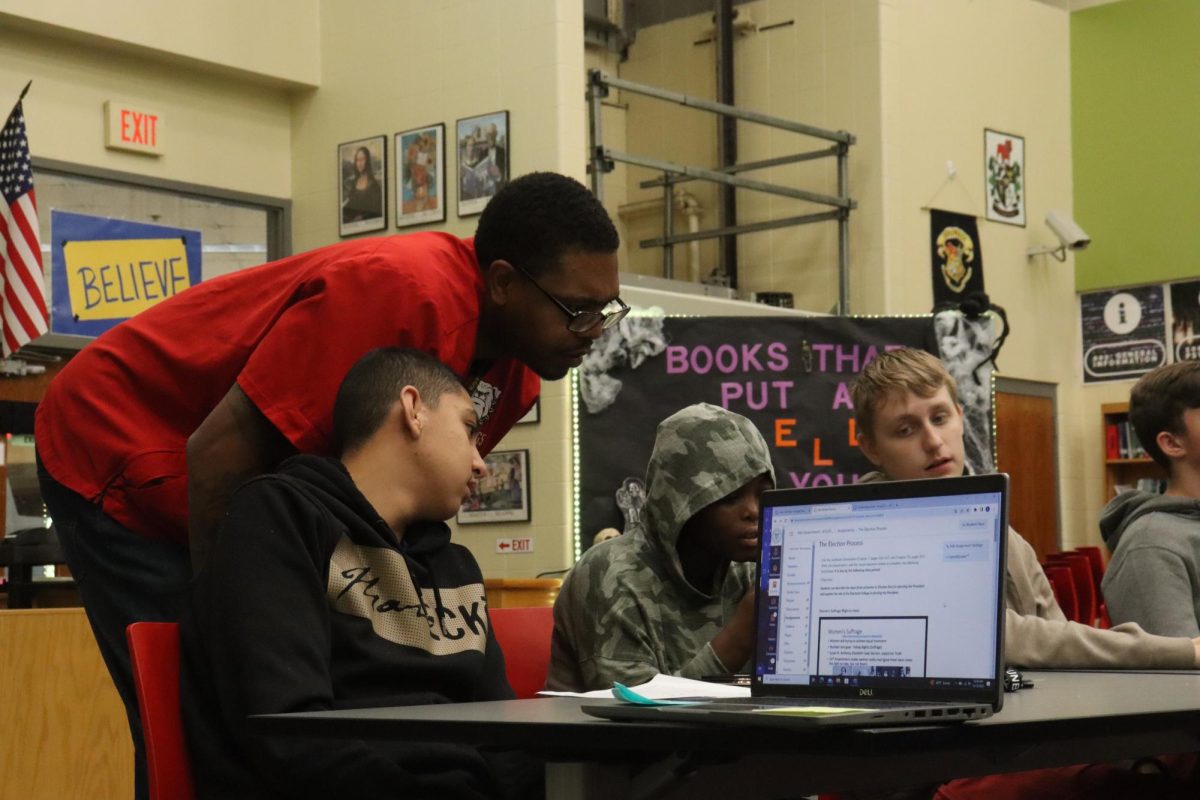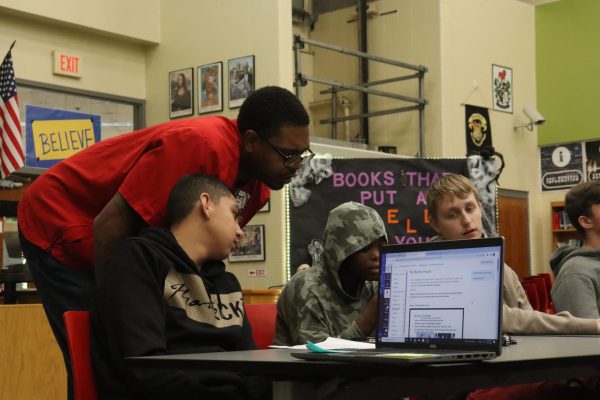Everything You Need for College Applications
Seniors applying to college should start thinking about taking the ACT, filing the FAFSA and visiting schools.
The first semester of senior year is critical for the college application process. Students are selecting their schools, applying for financial aid, raising their ACT scores and keeping up with numerous deadlines.
Here are all the things to remember during this time:
ACT
Taking the ACT is a first step for many in the college application process. All current seniors have taken it at least once because Dunbar students are required to take it during March of their junior year. The ACT is comprised of reading, math, English and science sections. Scores in these individual sections are rounded to the nearest whole number, up to a 36, and averaged together to get an overall composite score.
For students who have taken the ACT multiple times, some colleges use a “super score,” or the average of a student’s highest individual section scores, which can result in a higher composite.

Students interested in taking the ACT can register to do so here. Upcoming dates are Dec. 9 (register by Nov. 7) and Feb. 10 (register by Jan. 12).
The ACT fee is $46, which covers the cost of the test and sending scores to up to four colleges of the student’s choice.
When registering for the test, students can elect to receive emails from colleges. After scores are released, some schools will send out emails with information, important dates, and how to apply to potential applicants.
There are multiple resources available for students seeking to raise their scores including ACT tutors, ACT prep workbooks with practice questions and website tools such as ACT Online Prep.
CCC
The College and Career Center (CCC) is located across from the Booktique. Mrs. Pam Bates serves as a resource for students seeking post-secondary school information.
According to the CCC website, “The center hosts college representatives’ visits, business and industry representatives visits, guest speakers from a variety of careers, military representatives’ visits, FAFSA days, and student Group College & business site visits.”
The center hosts college representatives’ visits, business and industry representatives visits, guest speakers from a variety of careers, military representatives’ visits, FAFSA days, and student Group College & business site visits.
— Dunbar College and Career Center
If juniors or seniors are interested in a certain college, they can visit the campus as they are allotted three excused absences per school year for college visits. The excused absence is for the date of the visit only and does not account for travel time. A student must obtain a notice with an official letterhead of the school that includes the student’s name and date of visit.
If a student is not able to visit a college in person, many college admissions recruiters make their way to Dunbar to host information sessions. A complete list of dates and times can be found on the CCC website.
The Application Process
Selecting a college can be difficult. Every school typically requires an application fee, an online or paper application, a transcript, official test score reports (reaching a minimum test score is required for some schools) and/or a recommendation letter.
College websites often feature information such as application requirements and deadlines, a net price cost calculator, scholarship opportunities and visiting and tour dates.

Some schools participate in the Academic Common Market, which allows students to study outside their home state while paying in-state tuition.
The Academic Common Market is a program run by the Southern Regional Education Board that allows students to pursue a degree that isn’t available in their state. According to their website, “Students can enroll in out-of-state institutions that offer their degree program and pay the institution’s in-state tuition rates. More than 1,900 undergraduate and graduate programs are available.”
Participating institutions in Kentucky include the University of Kentucky, the University of Louisville, Eastern Kentucky University and Morehead State University.
The Common Application allows students to apply to over 700 colleges through one platform and find information about individual schools. This tool also includes financial aid information, tips for preparing for college and frequently asked questions.
Financial Aid
There’s a number of resources available to students seeking to alleviate the cost of college, including FAFSA, KEES money and scholarships.
The Free Application for Federal Student Aid (FAFSA) is a form students fill out annually to acquire federal financial aid. It opened on Oct. 1 and funds are awarded on a first come, first served basis. The earlier a student fills out the application, the better chance he or she has of receiving support. Some schools require students to file the FAFSA in order to complete their application. Questions about FAFSA can be directed to the CCC or the Guidance Office.
When looking for scholarships, don’t be afraid to apply for one with an essay. A lot of people get lazy and don’t want to do those, so be the one person who sticks out and does it.
— Senior Jasmine Ahmad
The Kentucky Educational Excellence Scholarship (KEES money) is another opportunity for Kentucky students seeking financial aid. KEES money is awarded annually to students who achieve a GPA of at least 2.5 and attend a certified KY high school. GPA awards start at $125 for a 2.5 and go up to $500 for a 4.0. Students who receive a 15 or higher on the ACT are eligible to receive additional scholarships.
ACT bonus amounts start at $36 for a score of 15, and go up to $500 for a score of 28 or higher. Students who qualify for the free or reduced lunch program during any year of high school can also receive awards for AP, IB and CAI exams. These students can be awarded for each test, $200 for a score of 3 on an exam, $250 for a 4 and $300 for a 5.

The most expensive colleges by state, according to Business Insider.
Websites such as College Board’s Big Future Scholarship Search are also available for students seeking scholarships. These websites will show students scholarships they are eligible for based on information provided by the user. Some of these awards have geographic restrictions, age restrictions or require students to be studying a certain major in college.
“When looking for scholarships, don’t be afraid to apply for one with an essay. A lot of people get lazy and don’t want to do those, so be the one person who sticks out and does it. When writing an essay, try to show your personality while still answering the prompt. Make sure to be careful of deadlines, each scholarship has a different one and if you miss it you might not qualify,” senior Jasmine Ahmad said.
Lastly, all Dunbar students are required to complete their Individual Learning Plan (ILP) every year. This website has college search services, a scholarship search and personality tests that recommend careers. Students who do not know their ILP login can talk to a counselor or homeroom teacher.
Further information on testing, applications and financial aid can be found in the CCC, on their website, or in the PLD Guidance Office.




















